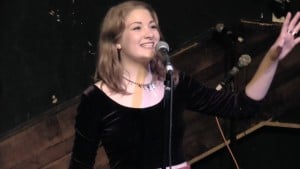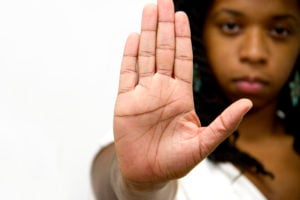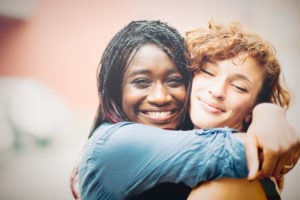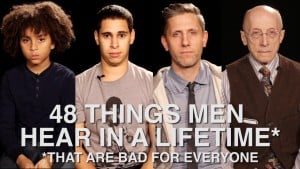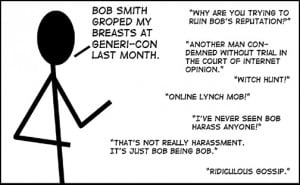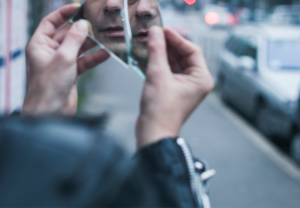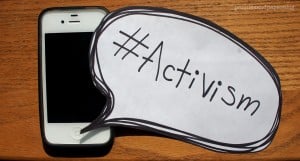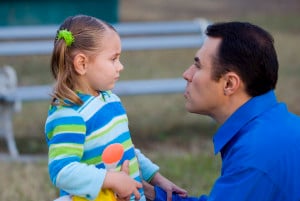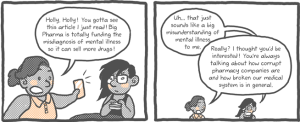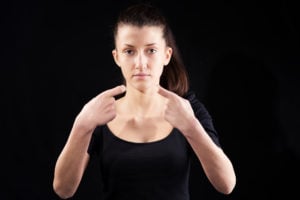
Source: Bluestockings Bookstore
We can probably all recall where we were and what we were doing when we heard about the Boston Marathon bombings.
Rachael certainly can. She was just across the Charles River, enjoying the first real day of spring and playing hooky from work.
Only a few days later, during the high-profiled, highly-publicized manhunt, the entire city was again paralyzed by fear. Rachel spent the day in front of the TV, compulsively checking Twitter, hoping that this would end soon so that everything could just go back to normal.
Moments of silence were observed. Social media account activity was suspended. And flags were flown at half-mast.
And for good reason.
It was a tragedy that left our national community shaken and saddened, understandably. Four innocent people, including a child, were killed in the bombing and the aftermath. Many more were injured in horrific ways, their lives forever changed.
The loss of any life – of every life – is a tragedy.
And that is what this article is about.
Because once the initial shock wore off, it was hard not to question why white Americans don’t display the same grief and outrage when repeated — and often more severe — violence occurs in other nations, or even in low-income urban communities in our own country.
In taking a closer look at why this problematic difference exists, we see a few different underlying issues. And there are many – including the ways that media coverage and patriotic brainwashing socialization affect the way that we digest information.
But peace as a form of privilege and blindness to violence abroad, as well as violence that occurs in low-income communities of color in the United States, are lesser-discussed issues that play a role in our digestion and conversations.
Is It Really That Different?
Many of us feel removed from the warfare, terrorism, and violence that occur each day in nations other than our own, despite the fact that our country is actively involved in armed conflict around the world.
We know that some of our brothers and sisters living outside of the United States walk through their daily lives in fear of war-related violence, but we often hear Americans say that it’s difficult to truly grasp and empathize with the tragedy that others experience.
There’s only so much you can do or feel from across the ocean, they say.
This sentiment was reflected very plainly in the way that the American people and media responded to violence on April 15, 2013, on top of every other day.
You probably don’t know this, but at least 31 innocent Iraqi people were killed and more than 200 others wounded on April 15th. We all know what else happened on April 15th —the Boston Marathon bombings, which killed 3 and injured 264.
We don’t report these figures as part of a numbers game to see which nation experienced a bigger tragedy that day. We report them to illustrate the difference in national and international media coverage of the events.
Perhaps the saddest part of considering the incidents side-by-side is that it’s not as if the Boston Marathon bombings simply overshadowed the violence in Iraq and that’s why we didn’t learn about it that day.
With or without the tragedy in Boston, we wouldn’t have heard about the lives lost in Iraq.
Some may explain this difference in media coverage with patriotism or the role that proximity plays — it’s much easier to feel the weight of a tragedy when it’s within your nation’s borders.
Which is true.
But is it really that difficult to see that the value of human life and peace does not change across borders? Or is the way Americans distance themselves from violence and tragedy abroad quite plainly a mechanism of xenophobia and racism?
If we come to this question with equality in mind, it isn’t difficult to see that the latter of the two is true.
When we bring equality and human dignity to the table, we uncover that America’s racism and xenophobia problems come to life in the way we are socialized to react to violence and the loss of life inside versus outside of American borders.
Much of this socialization takes place through mainstream media and our cultural attachment to a brand of patriotism that chants “Go America!” in a way that simultaneously normalizes xenophobia and celebrates Americans as a superior people (and you can probably guess which type of Americans, specifically).
And it’s this brand of racist and xenophobic patriotism that plays out in the way that we react to tragedy across both city neighborhoods and oceans.
In what ways is the deadly violence that occurs daily in Syria, to name just one nation, not as heart-wrenching and tragic as what occurred at the Boston Marathon?
The answer is none — zero.
And that’s why the way we reacted to the Boston Marathon bombings is tinged with racism and xenophobia – because our conditioned reactions are symptoms of a much larger problem.
Blindness: Domestic Terrorism and Violence
If you’re not convinced, consider the way we reacted to the violence at the Boston Marathon compared to our usual silence around the prolific violence in urban, low-income communities of color.
The proximity and patriotism arguments have no traction here. And it’s here that we can really get to the bare-bones crux of the issue.
Gun violence is most prevalent in our country’s impoverished urban communities, where research suggests that the PTSD rate could be as high as 40% — similar to the rates of PTSD in war zones.
But the throngs of us only cry out for better gun control policy when white children die as a result of gun violence.
There was no public outcry last year when 21 murders — 39% of the city’s total for 2012 — were committed in just two of Boston’s sixteen neighborhoods.
Those neighborhoods, Roxbury and Dorchester, have both the largest concentration of the city’s Black population and families living in poverty.
The curator of Anonymous Boston, a multimedia installation that addresses the utter lack of media coverage and concern regarding urban violence shares: “Our kids lie faceless and nameless, buried at the bottom of the corner of Page Six.”
On the disproportionate coverage and outrage over the loss of white Americans’ lives to violence, Jamarhl Crawfor, editor of Blackstonian.com, says:
“This is a mark of desensitization as well as the devaluation of black and brown life, where no one notices that daily drip from the faucet for years, but they pay immediate attention to the pipe bursting, even though in the long run the drip produced more leakage and caused more long-term damage, which is harder to fix.”
Boston is not alone in its invisible urban violence. Across America, low-income communities of color experience disproportionate gun violence. But the disproportionate media coverage or public outcry does not follow.
Alongside the importance of illuminating the factors that race, nationality, and socio-economics play in the way we respect, report on, and care about tragedy, it is critical to call our privilege into question.
Peace as a Form of Privilege
There’s something that’s intersecting with racism and xenophobia to drive our disparate concern with “pipe bursting” events like the Boston Marathon bombings and the Newtown school shooting. It enables us to be blind to the “daily drip from the faucet,” the violence that persists in low-income neighborhoods of color: peace as a form of privilege.
Part of why white folks are so jolted by tragedies like the Boston Marathon bombings and the Newtown school shooting is because we don’t often see other white people as victims of terrorism and violence – here in America or abroad.
We are confronted with horrific images of violence from around the world on a daily basis, and yet we are unable to empathize in any meaningful way because violence of this kind doesn’t happen to in the communities that dominate media coverage – and most, if not all, social power structures.
Living in peace, on a national and personal level, is a form a privilege.
The fact that we’re jolted by terrorism and violence in primarily white spaces, like Newtown and the Boston Marathon, speaks volumes of our “peace privilege.”
The fact that we’re shocked by violence is a testament to this privilege.
It has only been five weeks since the marathon bombings and the entire city being told to shelter in place because of threat of further violence was still very real.
And yet, as we begin to heal and attempt to understand the horror that took place, it’s vital that we reflect on our personal and societal responses to the Boston Marathon bombings with the understanding that they did not occur in isolation.
They are, in fact, rooted in a national blindness to the tragic violence that occurs both within and outside of our nation’s walls.
The first step is recognizing our “peace privilege.”
The second step is actively removing your voice from the national crowd of voices that mourns the death of people that look like us while turning a blind eye to the daily violence that impacts the lives of those either outside of national borders or the borders of privileged whiteness.
Want to discuss this further? Login to our online forum and start a post! If you’re not already registered as a forum user, please register first here.
Sara Alcid is a Contributing Writer for Everyday Feminism and is a young feminist living and working in Washington, DC as a reproductive health and justice advocate. Sara loves thinking, reading and writing about the socially and personally transformative power of feminism, queer issues, and women’s health. Follow her on Twitter @SaraAlcid. Read her articles here and book her for speaking engagements here.Rachael Becker is a 2012 graduate of Harvard University, where she studied Near Eastern Languages and Civilizations with a focus on modern Egyptian politics. She grew up in Idaho and is now happily working at an education start-up while living in Somerville, MA.
Search our 3000+ articles!
Read our articles about:
Our online racial justice training
Used by hundreds of universities, non-profits, and businesses.
Click to learn more





